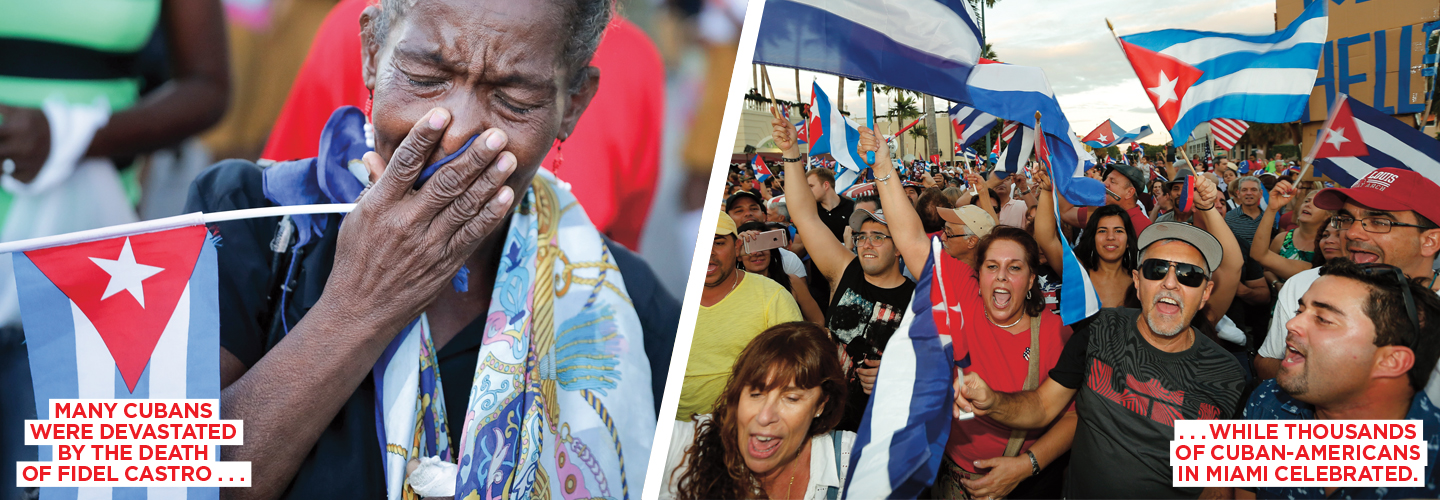When Fidel Castro died this past November at the age of 90, many Cubans were shocked and saddened. Huge crowds gathered in the capital of Havana to pay their respects to the country’s former leader, who had ruled the island nation with an iron hand for nearly 50 years.
Just a few hundred miles away in Miami, Florida, the reaction was very different. Thousands of Cuban-Americans—including many who had fled Cuba to escape Castro’s rule—took to the streets in celebration, waving Cuban flags and beating drums. To them, Castro was a brutal dictator who had stolen their families’ land, jailed political opponents, and wrecked Cuba’s economy.
Castro’s death “represents the end of something awful that happened to us,” says Isabel De Lara. She was 12 years old in 1961 when her parents sent her to the United States, fearful of what was to come after Castro took control of Cuba. “It’s because of him that we lost our opportunity to have a life in our country.”
Although Castro was no longer Cuba’s leader—he officially transferred power to his younger brother Raúl in 2008—he remained influential behind the scenes. Now, many people are hopeful that his influence will fade and that a new era will begin in Cuba.
When Fidel Castro died this past November at the age of 90, many Cubans were shocked and saddened. Huge crowds gathered in the capital of Havana to pay their respects to the country’s former leader. He had ruled the island nation with an iron hand for nearly 50 years.
Just a few hundred miles away in Miami, Florida, the reaction was very different. Thousands of Cuban-Americans took to the streets in celebration. They waved Cuban flags and beat drums. Many of them had fled Cuba to escape Castro’s rule. To them, Castro was a brutal dictator. He had stolen their families’ land, jailed political opponents, and wrecked Cuba’s economy.
Castro’s death “represents the end of something awful that happened to us,” says Isabel De Lara. She was 12 years old in 1961 when her parents sent her to the United States. They were afraid of what was to come after Castro took control of Cuba. “It’s because of him that we lost our opportunity to have a life in our country.”
Castro was no longer Cuba’s leader when he died. He officially transferred power to his younger brother Raúl in 2008. But he remained influential behind the scenes. Now, many people hope that his influence will fade and that a new era will begin in Cuba.

